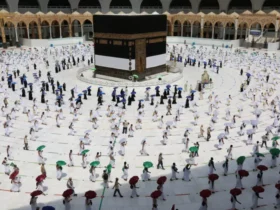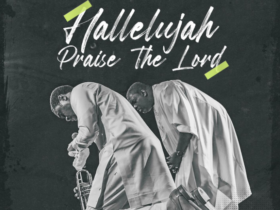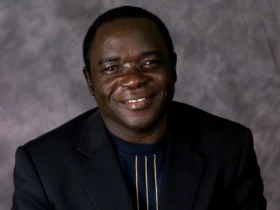Professor Ibrahim Abikan, the President of the Muslim Lawyers Association of Nigeria and a Lecturer, Deptartment of Islamic Law, University of Ilorin in this interview, discusses the killing of Deborah Samuel, a victim of mob violence killed for alleged blasphemy in Sokoto State
Can you walk me through your emotions when you learnt about Deborah’s killing, sir?
Her killing is the worst barbaric act that can be carried out by any set of people in the country. It is barbaric and unislamic. It is against the tenet of the teachings of any religion in the world. I can categorically state it is not an Islamic act, and there must be justice for the victim killed. I’m saying this, not just as a Lecturer and Lawyer but as the President of the Muslim Lawyers Association of Nigeria that we condemn the act and are against those who perpetrated it. Islam promotes civility and peaceful co-existence.
Kindly educate us on what would be considered as blasphemous in the Islamic religion, sir?
Blasphemy is an act of insulting God, the Prophet of God, or the religion, majorly. Muslims are warned even by God in the Quran that, “You must not at any time engage in the abuse of God’s of others.” So our own God (Allah) said that even when people choose other things as their God, you must not abuse that God because they will abuse yours if you do. Meaning their God is as important to them as yours is to you. It’s also not acceptable for some people to insult the Islamic religion. There is no consensus about the death penalty that ascribes to the punishment of whoever commits the act of blasphemy.
Even those who said it attracts the death penalty, no individual is given authority because there is no offence under Islamic law that should be punished without trial. However grave an offence is, even if it attracts capital punishment, the Prophet allows retracting blasphemous pronouncements, which means the offender can evade the punishment. I saw the viral video, which shows the abysmal level that our society has become in terms of what you are entitled to (right to a trial before execution).
Mob violence arises now before official actions like police arrests and judicial trials happen. Is this the Islamic or the Nigerian way?
There is nowhere in the Islamic religion and our holy books where mobs are allowed to carry out execution or punish an offender. I’m saying it authoritatively that it’s a criminal act. Under Islamic law, every accused person must be tried in due process.
What do you make of the alleged blasphemous comment the girl was lynched and burnt for?
Social media is disgusting with fake news out there. Whatever the version, it is a despicable act. The version I heard was that she said Muslims were sending religious content to the Class WhatsApp group. She was quoted to have said that they shouldn’t impose their ‘nonsense’ religion on them (non-Muslims). On that, the girl has freedom of expression to that effect. Islam says you cannot impose your religion on others. A verse says, “Your religion is for you, and theirs is for them.” So, as Muslims, you don’t cross the path. Everyone is entitled to their religion.
Blasphemy is a primary driver of sectarian violence rather than legal proceedings in the Nigerian context. What is your take on this in contemporary time and the nation being a secular state? Is this what is obtainable in other parts of the world?
Let me take it from the point of a secular state because that is a very long topic if we are to delve into that. As a Scholar of Islamic law, we don’t see Nigeria as a secular state by defining what secularity is. Nigeria is a multi-religious state where the law will recognise people’s different religions. Your religion doesn’t even come to the public sphere in a secular state at all. I spoke with one of my brothers in the USA on Eid Day (after the Ramadan fast), and the children went to school on Eid. In the US, people are not given a holiday on Eid day. That’s a secular state. Though, some states have started giving holidays on Eid Day over there. It is hypocritical because Christmas is a recognised religious festival with a public holiday. That’s by the way!
No individual has that power, prerogative, or discretion to declare a statement blasphemous. It’s the government’s call through a recognised court after examining it thoroughly. That’s how it should be in saner climes. Nobody can ascertain that Deborah has abused a prophet. That has to go to court, where it would be established. My advice in contemporary times is that, no matter the offence, the proper thing is to hand that person over to the authorities and let that person be prosecuted accordingly.
Are there any misconceptions and fallacies bordered around blasphemy law in Islam? And can we categorically state that blasphemy is a northern Nigerian thing?
Well, you see, even in the law of the UK, blasphemy is recognised. You cannot just abuse religion. You cannot even abuse the Queen. It is more common in the North than in other parts of Nigeria. You have the records as a pressman. You would realise that those carrying out such a dastardly act do not have deep knowledge of the religion.
During this particular incident, was there any Scholar (someone with certain knowledge and authority on the religion) around to establish whether what she was alleged to have said was blasphemous or not? No, there was none, and they took it upon themselves to kill an individual based on what they judged as blasphemous.
What’s the reason for this disparity in blasphemy judgement among the Islamic Madhab (School of Thought)? And do we have Quran verses or Hadith that prescribe worldly punishment for blasphemy?
There is none. In Islamic law, the substitute of the law is not just the Qur’an. There are authorities from the Sunnah (teachings of the Prophet) on some prescribed punishments. All discussion about blasphemy’s punishment doesn’t have their basis in the Qur’an but is based on Sunnah.
About the Madhab, the disparity is a matter of interpretation from the effort of these scholars. Quite a number of them, their respective knowledge about Allah and the religion informed their interpretations. Imam Abou Hanifa is the most liberal among them. He raised critical issues from the hypothetical and not the practical point of view at times – citing, what if this or that happens? Then he would begin to answer the ‘this and that’ (questions), giving fatwa (ruling), which many other scholars do not. So, the disparity was never a result of personal reasons.
What is your take on the reaction of the Chief Imam of Abuja Central Mosque, Professor Ibrahim Maqari, who was reported to have justified the act?
I wouldn’t say that is the justification of the act. It depends on the individual’s approach to it. From my perspective, you don’t offend the religion of other people. So many people have said many things offensive to the personality of other Muslims even when it is just a minute number of some boys and girls who have committed a condemnable act. There, you’d blame the individuals, not the religion, holistically. However, I don’t want to take the comment of the Chief Imam of Abuja as justifying that if any other person does the same thing, we are going to kill him. A learned person will not say that.
Some categorised blasphemy into three, arguing that it shouldn’t even be a thing that will matter in contemporary eras anymore.
– Blasphemy against holy personages – argued that God couldn’t be defended and we no longer live in the eras of the Prophet.
– Blasphemy against beliefs and customs – argued that Nigeria is not an Islamic state
-Blasphemy against artifacts – argued that religion is a matter of faith, attached to the heart and not ideas and innovations of man. I would like you to confirm and react, sir?
That’s a good classification of blasphemy. In the western world, there are things you cannot do. However, they have given it a name, Hate Speech, which is punishable. It is how they viewed the term, but it is not as strong as how it should be treated in the religion. They are just being hypocritical because there are other things that you cannot do in a civil society. As an American, you can’t step on or burn the American flag. It is a formal offence to do so. You can only do that outside their country. If within the US, you would be arrested and prosecuted. However, people would invade mosques and churches, desecrate them, indiscriminately destroy holy books, or sketch the Prophet’s images and cartoons. Do we have no regard for religion?
In Islam, any offence that will attract life, capital punishment is not just taken. Let me cite an offence that attracts capital punishment, e.g., Zina (adultery by a married adult). The evidence required for somebody alleging it is almost impossible to prove because Islamic law says that four people must witness it simultaneously. So if it’s one, the person must call another to bear witness. They must, in turn, be up to four. Ideally, in a society where the committers know that the Islamic law is used – will they still be there, waiting, till four people see them? If they are not four, they must not say that the alleged people have committed Zina. If they do, they will be punished for having lied. This shows how Islam, ideally, protects and places value on human lives. There is the sanctity of human life too. The position of proving someone’s guilt and taking the life is not just taken with levity. Not that people will gather themselves and say, let’s kill this person for this or that, just like that.
Now, Deborah Samuel is dead. Who is to be blamed? And what is legally right to take place after the incident, sir?
From my perspective, the first set of people to be blamed is the government. Although, the government was trying to attempt some time ago to regulate the indiscriminate use of social media so that everybody won’t just be saying whatever they like, irrespective of who is offended. They wanted to regulate it, but it was seen as a political move to gag those criticising the government.
The Sokoto State Government should see till the very end that the police fish out all the perpetrators and ensure appropriate sanction is meted out to them. Then we will have a reduction in the commitment to such an act.
Unfortunately, Nigerian leaders are not serious. Because of the political era, they may take such acts with levity so they will not get backlash from getting votes in the coming elections. And if they consider this, it shows the level of seriousness with which we take governance. Even if they would lose votes, a good government would do what is right.
Does blasphemy have to be spoken?
Blasphemy can be written or spoken words that are very clear and not subjected to interpretation. If you do it by action, people can interpret it differently, but your words and writings; it will be clear and have the ordinary meaning of what you have said. So, these are the recognised ways you can commit blasphemy.











Leave a Reply